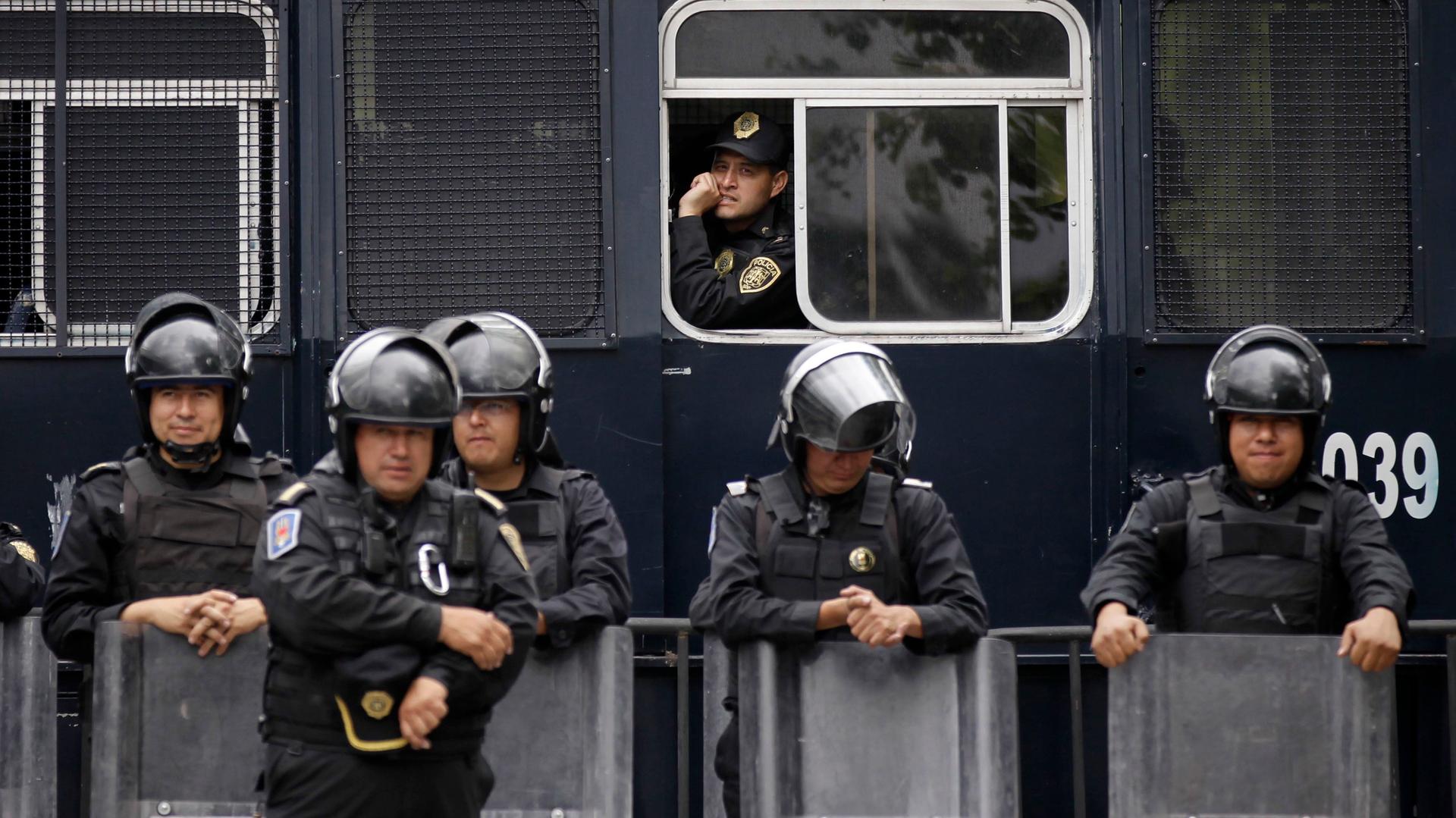2017 was Mexico’s deadliest year
Riot police stand guard beside a police bus as protesters take part in a protest march against Mexican President Felipe Calderon's administration for failing to curb organized crime, outside the National Congress building, in Mexico City, Sept. 1, 2012. Hundreds of protesters on Saturday held the rally prior to Calderon's delivery of an annual report on the opening of a new year of legislative session in the National Congress.
Mexico saw a total of 25,339 murders last year, official data has shown, after 2017 was already established as a record-breaking year based on killings carried out until November.
The interior ministry on Saturday said 2,219 people were murdered in December 2017.
Authorities began collecting data in 1997, and the previous record high of 22,409 occurred in 2011.
The homicide rate per 100,000 inhabitants meanwhile climbed to 20.51, against 16.80 in 2016, when 20,545 were murdered.
Mexico is convulsing from a wave of violence linked to drug trafficking that has left almost 200,000 dead since December 2006, when former president Felipe Calderon's government launched a controversial military anti-drug operation that, according to its critics, has only led to more murders and attacks.
The figures do not detail how many of the murders are linked to organized crime but experts say it is probably a large majority since the bulk were recorded in states where drug cartels are deeply entrenched, such as southern Guerrero and eastern Veracruz.
Within the last year, even states that were previously relatively peaceful, such as Baja California Sur, northwestern Colima and central Guanajuato, were shaken by violence.
Analysts believe this may be linked to a surge in the number of autonomous cells following the capture of the heads of major drug cartels.
Criminal gangs have also diversified, trafficking in stolen gasoline, engaging in extortion, kidnapping for ransom or people trafficking.
In a bid to address the issue, Mexico's congress last week approved a controversial internal security law that would formalize the military's role in domestic security.
The move drew criticism from rights groups concerned about the militarization of the country — while UN rights chief Zeid Ra’ad Al-Hussein said earlier this month it "risks weakening incentives for the civilian authorities to fully assume their law enforcement roles."
Our coverage reaches millions each week, but only a small fraction of listeners contribute to sustain our program. We still need 224 more people to donate $100 or $10/monthly to unlock our $67,000 match. Will you help us get there today?
